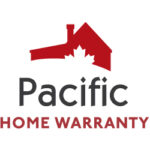If you’re planning on building a home, renovating your home, or adding a second structure such as a garden suite onto your home, you need to know your zoning regulations. However, the difference in zoning in Victoria BC can make this frustrating and challenging information to receive and understand. There are well over a hundred different zones within 4 distinct categories, and it can be difficult to find the regulations you need to follow.
We’ll discuss what exactly zoning regulations are, the different categories of zoning, why zoning regulations are important, what the different schedules are, how to find your zoning regulations, and what happens if your plan does not conform to the existing zoning regulations for your area.
What is a Zoning Bylaw?
A zoning bylaw implements regional and municipal land use planning visions, supports community sustainability, and regulates how land and buildings may be used. The bylaws divide the city or parts of the city into zones, give those zones a name, and establish the land and building boundaries for each zone.
There are residential zones, commercial zones, industrial zones, and others. A zoning bylaw has the power to limit the height of buildings, purposes and uses of buildings, and size of buildings, among others.
In any zone, the following can be regulated:
- Size and dimensions of buildings and other structures
- Use of land and buildings
- Location of buildings on the land including setbacks
- Shape and dimensions of plots of land (i.e. minimum and maximum parcel sizes)
- Siting of the land
- Protection of heritage properties
- Standards of work and services
- Densities of land and buildings or other structures
- Parking standards
What Are the Different Zones in Victoria BC?
There are hundreds of zones within Victoria BC, but they all fall into only a few different categories which are broken down into the following:
- Detached Dwelling Zones
- Attached Dwelling Zones
- Multiple Dwelling Zones
- General Commercial Zones
- Transient Accommodation zones
- Central Area Zones
- Industrial and Service Zones
There are also several different schedules that may apply to you as well, including:
- Off-street parking
- Home occupations
- Accessory building regulations
- House conversion regulations
- Panhandle lot regulations
- Cistern regulations
- Small scale commercial urban food production regulations
- Garden suites
- And residential rental tenure
These schedules give you all of the regulations you must follow. For example, Schedule F applies to accessory buildings and lists all kinds of rules and standards for an accessory building on your property. just for fun, here are some of the regulations you would have to follow for an accessory building:
- Must be located in the rear yard
- Floor area cannot exceed a maximum of 37m2
- Roof decks are not permitted
- The accessory building must be at least 2.4m from the principal building on the property
- Can only cover 25% of the rear yard lot
- An accessory building cannot be used as a dwelling unit or contain a shower or toilet facilities
Every schedule will give you information regarding land use restrictions, location on the property, structure height, site coverage, parking, setbacks and building separation, and more. Different schedules apply to different zoning bylaws. For example, zoning bylaw R1-B, which applies to a single family dwelling, may be subject to Schedule “M” for garden suites, Schedule “D” for home occupation, Schedule “G” for house conversion, and Schedule “F” for accessory buildings.
How to Determine Your Zoning Regulations
Often, your home builder or contractor will worry about your zoning regulations as well as your permitting for you, but it’s always smart to know these things for yourself as well. In the end, if you bypass a zoning bylaw by accident due to ignorance, you’re on the hook for fines as well as the construction and removal costs of whatever you built or added onto your property.
To find out what you are allowed to add to your property or change within your house, you have to find your applicable zoning bylaw and whatever Schedules apply to your property type. All of this information is online, but you can also go down to city hall or simply speak to your contractor or home builder beforehand to make sure they know all of the regulations they must abide by.
Just in case you’re curious about your own property, you can find your zoning regulations here.
Why Are Zoning Regulations Important?
Put simply, zoning bylaws are put in place “for the health, safety, and general welfare of the public” as relates to land use. There are responsible for regulating land use that is not in the best interests of the people:
- They provide orderly development to the city
- They make provisions for land use that is in the best interest of the citizens
- They provide adequate infrastructure including sewer lines and roads
- They protect the enjoyment and value of properties in two ways: (1) they allow a property its most appropriate use in accordance with its location and surrounding uses; and (2) they separate incompatible land uses in order to minimize the negative impacts one use has upon another.
What Happens if Rezoning is Required?
A property might have to be rezoned if the proposed land density or use does not conform to the existing zone bylaw for that property. If that happens, the property owner or construction manager/contractor must submit a rezoning application that will be open to a public hearing before the council makes their decision regarding the rezoning request.
The rezoning request also goes through a few stages of consideration and input from the town council, the development services department, and other departments including fire and engineering when their expertise is required. If your application is denied, you cannot continue with your proposed changes.
Final Thoughts
It’s not exactly simple to understand the difference in zoning in Victoria BC, is it? But it is worth the effort to learn and understand since they are so important whenever you’re planning construction or land use changes on your property. Zoning bylaws are there for a reason, and you can get in serious hot water if you ignore them accidentally or on purpose, so make sure you make note of all regulations pertaining to your property before putting one shovel in the ground.





